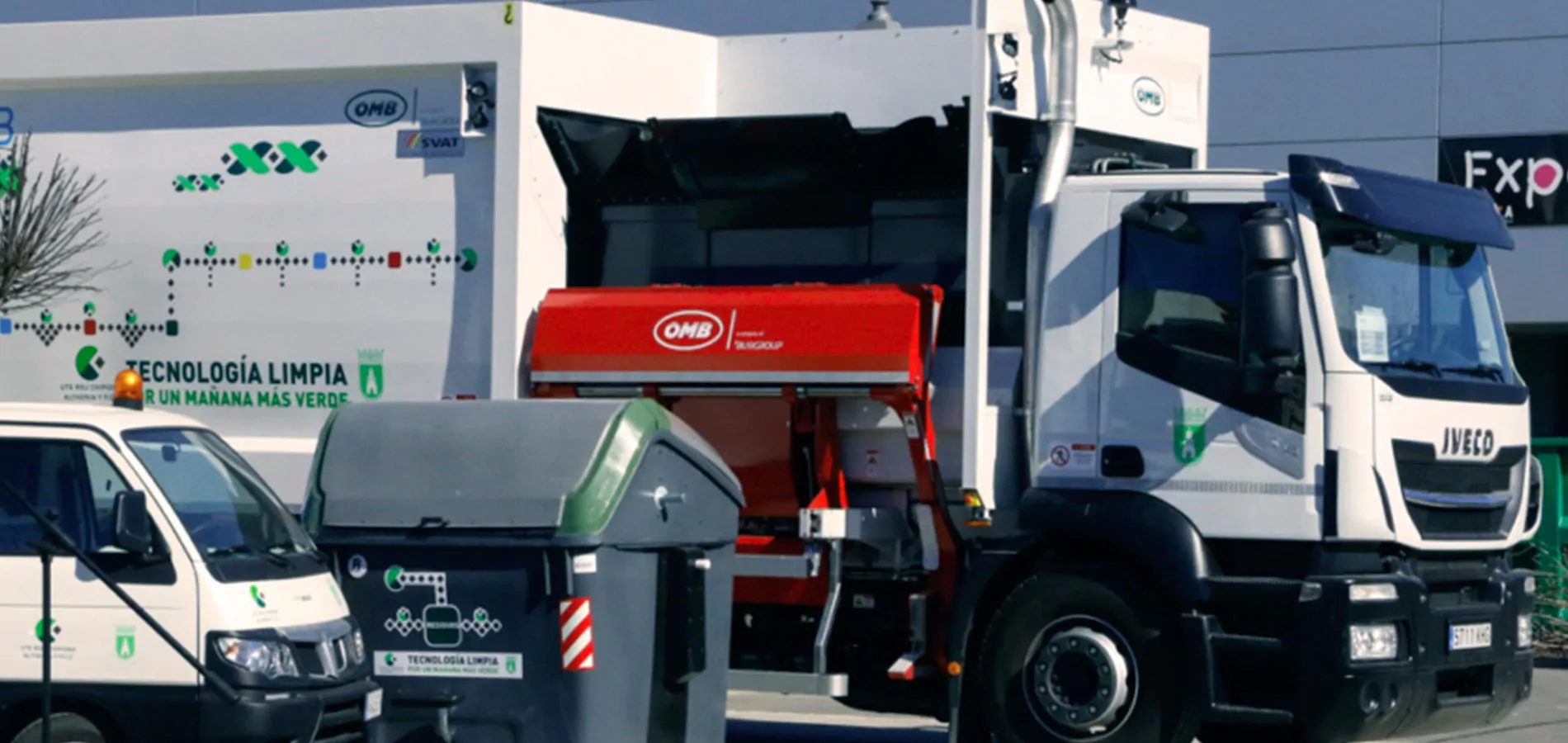The continuous increase in municipal solid waste is one of the leading sustainability challenges facing local authorities, service providers and citizens. . In April 2022, Law 7/2022 on waste and contaminated land for a circular economy was published, the main objective of which is to achieve a 15% reduction in waste generation by 2030. This law establishes the obligation to carry out selective collection of organic matter in all municipalities. It introduces a new differentiated municipal tax to cover all the costs of sustainable waste management.
Municipal solid waste, organic waste, plastics, glass, paper and cardboard are mainly generated from activity in households, offices, shops and businesses. Therefore, the first phase to achieve a significant reduction depends on raising public awareness so that citizens reduce waste generation through reusing and correctly separating waste at the source (according to the corresponding container). The municipal solid waste management process begins when waste is deposited in the containers.
Althenia Sando offers integrated solid urban waste (SUW) management services, with decades of experience in Spain and Morocco, from collection and transport to treatment plants or landfill sites to waste treatment services for disposal or conversion into bioproducts or energy.
Once municipal waste has been collected, it is transported to specialised waste treatment plants, where different specific treatment techniques are applied.. Althenia Sando’s integrated treatment plants effectively incorporate the circular economy in the different phases, as the ultimate goal is to send as little as possible to landfill. The different stages of waste treatment implemented in these plants follow the so-called “waste hierarchy”.
The first phase of this hierarchy is recovery for recycling, a phase in which the role of citizens in the way they dispose of waste in the bins is critical. Althenia Sando collaborates with public authorities in the exercise of its activity in the implementation of initiatives to educate and raise awareness in society, to reduce the generation of waste, and to manage it effectively when it is produced.
In the phase of material recovery of the biodegradable fraction, the aim is to transform the waste through treatments carried out in composting plants.. In them, through aerobic biological processes, i.e. with the presence of oxygen, organic waste is decomposed and valorised in the form of fertiliser that can be used in agricultural activities, soil improvement in degraded forest land, gardens and, in general, in all land with a deficit of organic matter or impoverished soils.
The third phase consists of energy recovery, in which waste that was previously rejected in the previous phases is burned to transform it into energy because it is not recoverable or recyclable. Among the activities carried out by Althenia Sando in this phase is incineration to transform waste into combustion gases such as biogas or pyrolysis in high-pressure sealed chambers. This system is more efficient than incineration and allows much more energy to be obtained.
After the previous treatments, the last phase consists of the final elimination of the remaining rejects. In this phase, Althenia Sando carries out activities such as: dumping in controlled landfills, with isolation and containment mechanisms to avoid contamination of water resources and land, or biomethanisation, which consists of obtaining biogas by anaerobic digestion of organic waste.
The basic principle of all these waste recovery and valorisation activities is ultimately to achieve products that can be put to other uses, reducing the exploitation of raw materials or generating energy.

Municipal Solid Waste
Innovation and circular economy against the waste challenge
Municipal Solid Waste
Integrated solutions for waste circularity
Althenia Sando offers innovative solutions for solid urban waste, ranging from street collection and transport to treatment plants or landfills to treatment services for disposal or conversion into bioproducts or energy. In this way, we offer a comprehensive service for managing solid urban waste that contributes to reducing environmental impact and the adverse effects on health caused by its generation.